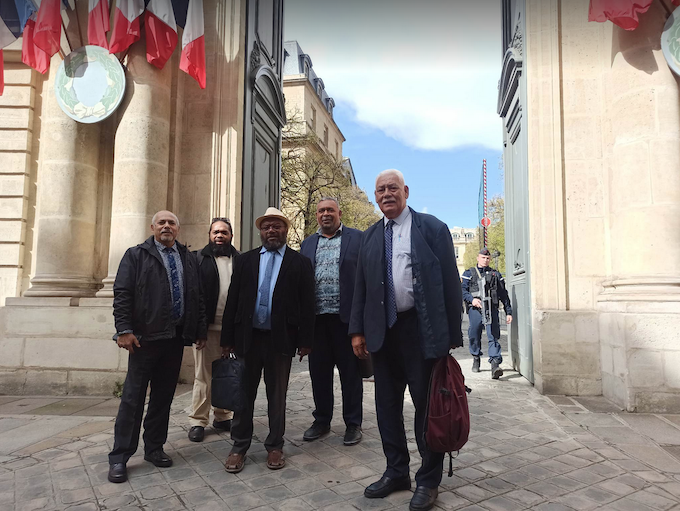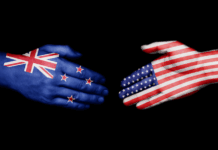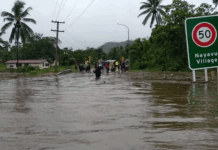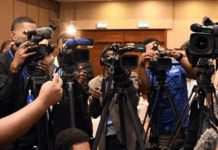
By Walter Zweifel, RNZ Pacific reporter
New Caledonia’s rival pro- and anti-independence factions both say they are satisfied with the week of separate talks with French government ministers in Paris.
After the rejection of full sovereignty in three referendums and the expiry of the 1998 Noumea Accord, a new statute for Kanaky New Caledonia needs to be created.
While the pro-independence parties want Paris to give a timetable to full independence, the anti-independence parties want Paris to realign the territory with France.
The discussions will be continued in Noumea in June when French Interior Minister Gerald Darmanin plans his next visit.
His ministry said he would go to the United Nations in New York in May to discuss the situation in New Caledonia.
The territory has been on the UN decolonisation list since 1986, based on the Kanak people’s internationally recognised right to self-determination.
After this week’s talks in Paris, Victor Tutugoro of the pro-independence Kanak and Socialist National Liberation Front (FLNKS) told the AFP news agency all points raised by his side had been accepted for the negotiations in June.
FLNKS accepted invitation
The anti-independence parties expressed satisfaction that the FLNKS accepted the French invitation for this week’s bilateral discussions after shunning a dialogue in France since the third and last independence referendum in 2021.
The pro-independence side largely abstained from the third vote because of the pandemic and refuses to recognise the result as the legitimate outcome of the decolonisation process.
The anti-independence parties want the June talks to be trilateral after the pro-independence parties insisted on negotiating only with France about a path to sovereignty.
The president of the Southern Province, Sonia Backes, said Darmanin’s visit would make sense only if the pro-independence parties joined the anti-independence parties for discussions.
On key points, the two sides remain far apart.
The pro-independence parties say the restricted rolls for provincial election, which define New Caledonian citizenship and are enshrined in the French constitution, must stay.
The anti-independence parties want France to open the rolls for next year’s provincial elections to include people who settled since 1998.
They also want a statute preventing any future option for self-determination.
According to a New Caledonian member of the French National Assembly, Nicholas Metzdorf, Darmanin said either time would do the job, or he would do the job.
French Polynesians vote for new Assembly
Meanwhile, in French Polynesia voting has started in the first round to elect a Territorial Assembly for a new five-year term.
About 200,000 voters can choose among seven lists of candidates vying for the assembly’s 57 seats.
A list securing at least 12.5 percent of the votes can stand in the run-off round in two weeks.
In the second round, on April 30, the list winning most votes will get a third of all seats as a bonus, which assures it securing an absolute majority.
This article is republished under a community partnership agreement with RNZ.









































